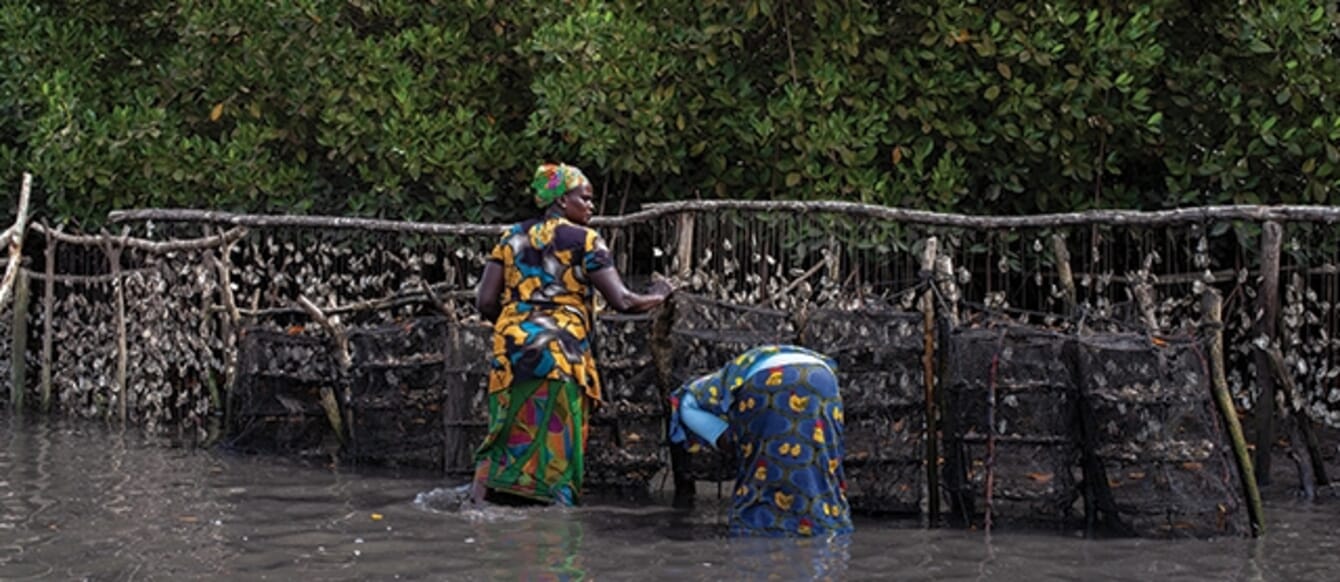
The new strategy aims for nearly 25 per cent of the country's 21,000 tonne production target to come from oyster farms by 2032
“Senegal has the natural resources and a strong local demand to support a flourishing oyster sector,” said Doudou Gueye Faye, representative of the Ministry of Fisheries and Maritime Economy, at a meeting in Dakar where a strategy for oyster production in Senegal was endorsed.
“Taking social, environmental and sanitary issues into account will ensure that our efforts are sustainable, and that’s exactly what this strategy is all about,” he added.
The strategy has been elaborated with a wide array of stakeholders involved in the oyster sector in Senegal and spearheaded by FISH4ACP, a global fish value chain development initiative of the Organisation of African, Caribbean and Pacific States (OACPS) implemented by FAO with funding from the European Union (EU) and the German Federal Ministry for Economic Cooperation and Development (BMZ).
In Senegal, FISH4ACP works to make the oyster value chain more productive and sustainable. According to the strategy endorsed today, the oyster sector is to become a catalyst for economic and social development, based on sustainable and equitable exploitation that contributes to the empowerment of women.
The ambitious agenda for the future of Senegal’s oyster sector underpinning the strategy envisages a 30 per cent increase of production to 21,000 tonnes in ten years’ time to cover more than 80 per cent of domestic demand. In addition, added value would nearly triple to USD 12.6 million, while the number of full-time jobs is estimated to jump from 6,500 to 11,000.
By 2032, nearly 25 per cent of production would come from oyster farms, representing a five-fold increase of the current farmed oyster production and a clear sign that oyster farms are a key component of the strategy, also because of the environmental benefits of farming over wild harvesting to ensure the abundance of oyster stocks.
“Today marks an important milestone in FISH4ACP’s efforts to make oyster production in Senegal more productive and sustainable,” said Makhfousse Sarr, representing FAO, adding: “We have a clear mandate now on how to contribute to better production, better nutrition, a better environment, and a better life in Senegal.”
The strategy is based on a value chain analysis conducted by FISH4ACP last year that confirmed the growth potential of Senegal’s oyster sector, but also pointed at the risk of overexploitation and raised sanitary concerns related to water quality, control and certification, for example, now being addressed.
The value chain analysis also showed that most of the work in the oyster sector is done by women from the southern provinces of Casamance and Siné-Saloum. Oysters are key to their livelihoods, but revenues are hardly enough to feed their families, a trend that the new plan is aiming to reverse.


